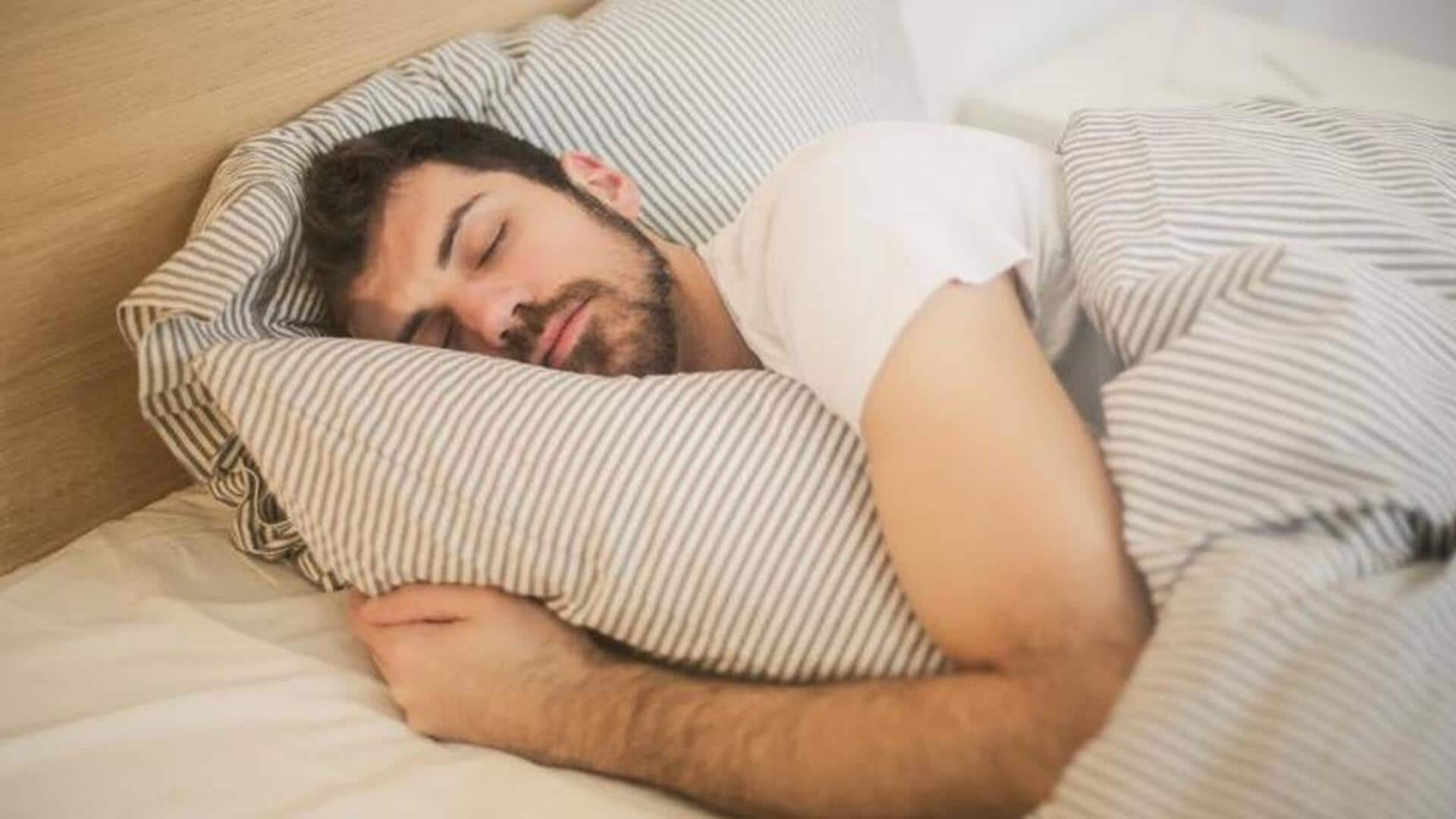
Debunking the sleep tech myth: A guide
What's the story
In our desperate attempts to sleep better, we often fall prey to the world of gadgets that promise us the moon, or rather a good night's sleep.
However, the reality of these electronic sleep aids and their true impact on our rest is often shrouded in mystery and misconceptions.
Let's bust some myths, shall we?
Myth 1
Screens help you wind down
The idea that scrolling through social media or watching TV unwinds you before bed is a common but harmful misconception.
In truth, the blue light from screens inhibits melatonin production, a vital hormone for sleep regulation.
This disrupts your body's internal clock, making it more difficult to fall asleep and potentially decreasing overall sleep quality.
Myth 2
Sleep apps ensure better rest
Numerous apps promise to enhance your sleep by tracking sleep cycles or playing calming noises.
While they can offer insights into your sleep patterns, research indicates they don't necessarily improve sleep quality in a meaningful way.
Depending solely on an app for a good night's sleep might divert attention from tackling root causes of sleep disturbances.
Myth 3
E-readers are just like books
Transitioning from paper books to e-readers at bedtime might appear to be an innocuous modern convenience.
However, e-readers, like other electronic gadgets, emit blue light.
This light disrupts the production of melatonin, a hormone essential for sleep regulation.
As a result, falling asleep rapidly and deeply becomes more difficult.
For individuals seeking to relax before bed without disturbing their natural sleep cycle, traditional books remain the superior choice.